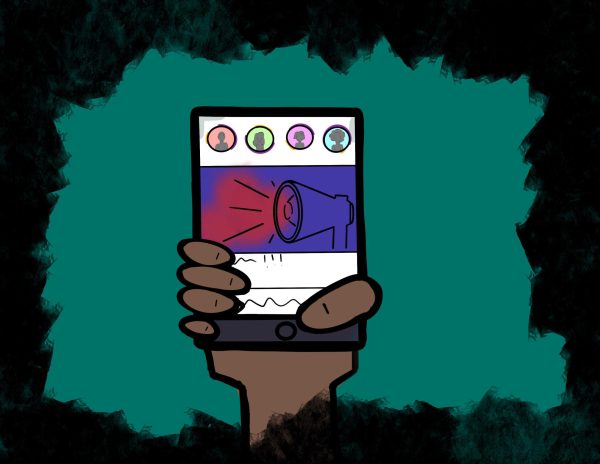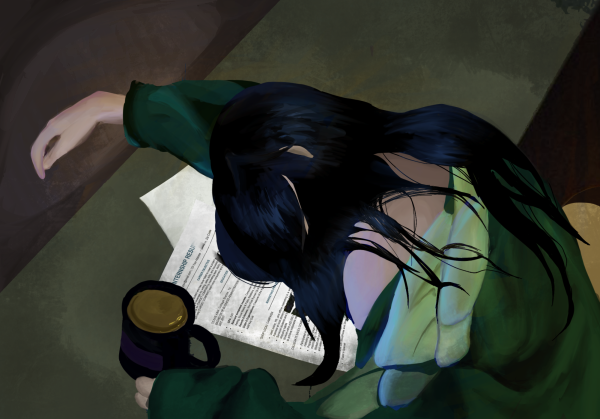Sia Movie Debut is Ableist, Offensive
Pop singer songwriter Sia Furler’s film directorial debut, a movie musical titled Music that focuses on an autistic main character, was released in February.
As a casual listener of her music, I was a fan of Sia’s work during the time of the announcement in November, so I was pretty excited to see what Sia had in mind for her next project. According to the film director of the film, the movie follows “a teenager named Music on the autism spectrum and her newly sober drug dealer half-sister’s relationship and bond.”
Many people took to social media following the announcement of the film to express their excitement of autistic representation in this high budget movie. However, this bubble was promptly burst once the Music trailer dropped. I, as well as many others, realized that this movie did not chalk up to the heartfelt and inclusive storyline Sia had teased, but rather a movie that is extremely ableist in nature.
“Ableist” is when something is discriminatory or socially prejudiced against people with disabilities. The casting, cinematography, and plot line of the movie promote harmful stereotypes about the autistic community and are simply downright offensive.
For example, a big issue many have with the film is the casting. Sia announced months prior to the film’s release that 19 year-old dancer and actress Maddie Ziegler, a neurotypical (non-disabled) person, was going to play the autistic main character Music, a teenager, who has autism. Sia casted all of her characters via Twitter, which left many dumbfounded as to why she did not put in more effort to find an actual autistic person to play the main lead.
“Several autistic actors, myself included, responded to these [casting] tweets. We all said we could have acted in it on short notice,” wrote 1 twitter user. Ziegler, who has appeared in countless Sia music videos and other projects, should not have been Sia’s default in this film.
Monique Donath, a stage performer and mother to an autistic child, said, “In a world where we’re trying so hard to create really strong diversity, why is that they’ve got a neurotypical person playing an autistic person?”
Sia responded to the large amount of casting backlash in a tweet by saying that she has made the effort to work with an actress on the spectrum but ultimately found the experience “unpleasant and stressful.”
I find how Sia has defended her choice to cast Ziegler on social media quite flawed, as she seems to be trying to save face rather than hear out members of the autistic community–the very group her film is representing. There are so many talented autistic actresses that could have played Music in the film. To name a few of these women, Daryl Hannah, Kayla Cromer and Paddy Considine are all amazing, acclaimed actresses that are also autistic. Therefore, there was no lack of potential autistic actresses for Sia to cast; Sia simply made the conscious decision to not include someone on the spectrum in the film.
Another issue with the film is the cinematography of the film itself, which includes a series of special effects that in actuality makes the film unsuitable for a large percentage of the autistic community. The movie also has large dance sequences that have a lot of bright colors and strobing lights, which some members of the community have exclaimed to find unaccommodating.
Furthermore, the movie has scenes in which characters use dangerous restraints to hold Music down while she has a breakdown. These extremely physical restraining methods—which are dangerous for both parties involved—have resulted in the death of autistic people throughout history. Action groups have been created to stop the use of these types of restraints, such as the Alliance Against Seclusion and Restraint, CommunicationFIRST, and Autistic Self Advocacy Network.
To have a mainstream high budget movie include such backwards methods is horrifying to me. Autistic people, who are underrepresented in film as it is, have been entirely ignored by those involved with making the movie and ultimately are the real ones who could suffer future consequences from these harmful portrayals. Sia’s casting choices also show the lack of effort in including autistic voices in the production and writing of the movie.
Ziegler’s movements and facial impressions in the film are incredibly ableist due to the fact that she is a neurotypical person and does not do any of the things in the movie naturally; these movements are also quite exaggerated and with autism being a spectrum, does not portray the community well. Ultimately, the portrayal of Music’s character is a mimicry of the autistic community.
If Sia had cared to actually cast an autistic person, this wrongful portrayal and harmful stereotypes would not have been portrayed in the movie.
Music is far from the “love letter to caregivers and to the autism community” that Sia described it to be. Instead, it just proves that an ableist person could not possibly create something authentically genuine about a marginalized group of people that they know nothing about and go out of their way to ignore.
Inclusion and representation is incredibly important in film, but not when harmful and dangerous stereotypes are presented instead.
It is incredibly important to listen to the words and perspectives of the autistic community, and to not support this film, whether that be by renting it or buying it, as it promotes such harmful stereotypes. Sia made the grave mistake of not listening or respecting the autistic community in the creation, but hopefully in the future, filmmakers will be more sensitive to avoiding ableist narratives and practices.
Your donation will support the student journalists of Campolindo High School's The Claw. Your contribution will allow us to produce more issues and cover our annual website hosting costs.

Senior Isabelle Katz loves to learn and tell stories. Depth reporting is a passion of hers. “You have to execute the craft of story telling and let the...

